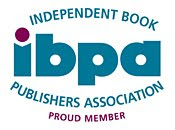This week’s Torah portion, Shoftim, (Deut. 16:18-21:9)
begins with the commandment for the Israelites to appoint officers and judges
when they settle the land, in order that the people be judged righteously. The third verse of the parshah is the well-known,
“Tzedek, tzedek tirdof” “Justice, justice, you shall pursue”. This is followed by a compendium of laws,
including laws of warfare. At the end of
that section comes the following verse: “When
in your war against a city you have to besiege it for a long time in order to
capture it, you shall not destroy its (fruit) trees, wielding the axe against
them. You may eat of them, but you must
not cut them down. Are trees of the
field human to withdraw before you into the besieged city? (Deut. 20:19)
Based on the phrase “lo tashchit” (you
shall not destroy) came the laws of “bal tashchit”, an entire category of
destructive and wasteful actions which were prohibited. According to the understanding of Moses
Maimonides and other sages, the fruit tree in time of war was only one example
of the way in which we are enjoined to treat property – our own, or that of
others. Maimonides wrote:
…Whoever cuts down a
fruit-bearing tree in a destructive manner is liable to lashes. But it may be cut down if it damages other
trees or causes harm to neighboring fields or because it fetches a high price. The Torah only forbade willful
destruction. This is the case not only
with trees. But whoever breaks utensils,
tears garments, demolishes a building, stops up a well and willfully destroys
food violates the prohibition of “you shall not destroy”. (Mishnah Torah,
Melachim)
The
prohibition, according to Maimonides, is against meaningless destruction, not
only of God’s creation, but of any property.
In American law, you are free to destroy your own property. You paid for it, it’s yours, and you can do
anything you want to with it. Not so,
says Maimonides. Pointless destruction
of any kind is forbidden.
If that was true in
the times of Maimonides, then it is even truer today. The Founders’ Statement of the Coalition on
the Environment and Jewish Life, written in 1992, reads:
For Jews, the environmental
crisis is a religious challenge…Where we are despoiling our air, land and
water, it is our sacred duty as Jews to acknowledge our God-given
responsibility and take action to alleviate environmental degradation and the
pain and suffering that it causes.
We
are the spiritual heirs of Maimonides. The
laws of Bal Tashchit remind us that even if we are the purported owner,
everything on earth is God’s, not ours.
All of it is precious, and none of it should be wasted.





